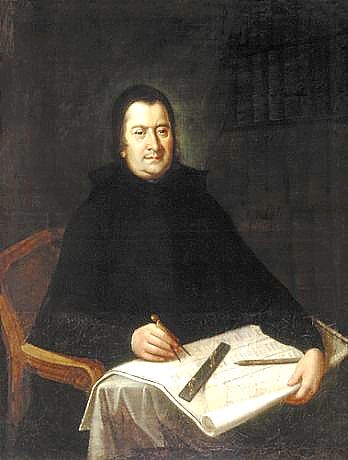He was born in Żarczyce (in the Chęciny District) on the 30th of September 1700. He attended the Piarist school in Piotrków. In 1715 he joined the Piarist Order and continued his education in their institutions. Soon he began to work as a teacher himself. He would teach rhetoric, poetry, and pronunciation. After a short sojourn in France, encouraged by Józef Jędrzej Załuski, he undertook to prepare a complete edition of Polish legislation. The six volumes of the work Volumina Legum were published between the year 1732 and 1739. In 1733 Konarski wrote Rozmowa pewnego ziemianina ze swoim sąsiadem o teraźniejszych okolicznościach. During the interregnum of 1733, he supported Stanisław I Leszczyński, collaborating closely with Jan Tarła. In 1740 he opened the so-called Collegium Nobilium, an exclusive school for sons of the gentry in Warsaw. He also made some attempts at reforming the national education system. In his most important work - O skutecznym rad sposobie (four volumes; 1761-1763) he presented a proposal of a thorough governmental reform of the Polish Commonwealth, criticizing the ‘liberum veto’ principle and other shortcomings of Polish parliamentary deliberations. Later, as a response to certain critical objections regarding his work raised by Wacław Rzewuski, in his pamphlet called Myśli na myśli albo uwagi nad projektem pt. Myśli o niezawodnym utrzymaniu sejmów i liberi veto Konarski slightly modified his standpoint on some issues. For instance, he limited his postulated scope of issues to be decided by a simple majority of votes. In his memorial entitled Uwagi szlachcica nad usposobieniem sąsiednich mocarstw względem naszych sejmów (1763) he argued that abolition of the ‘liberum veto’ was not a threat to the interests of Poland’s neighbours. In order to honour the eminent Piarist, King Stanisław II Augustus had a medal struck with Konarski’s likeness and the motto Sapere auso. During the Bar Confederation Konarski remained loyal to the king, which only embittered his conflict with the papal nuncio Angelo Durini, who supported the confederates and accused the Piarist himself of heretic views, grounding his charges on some theses found in Konarski’s treatise O religii poczciwych ludzi (1769). Although in that work the Piarist propagated some ideas directed against deists and emphasized the necessity of rejecting a morality which was not supported by any religious sanction, he at the same time suggested that the clergy needed to submit to secular authority when it came to temporal matters. Thanks to the mediation of various personages - including the king himself - Konarski was eventually cleared of the charges. He died on the 3rd of August 1773.

